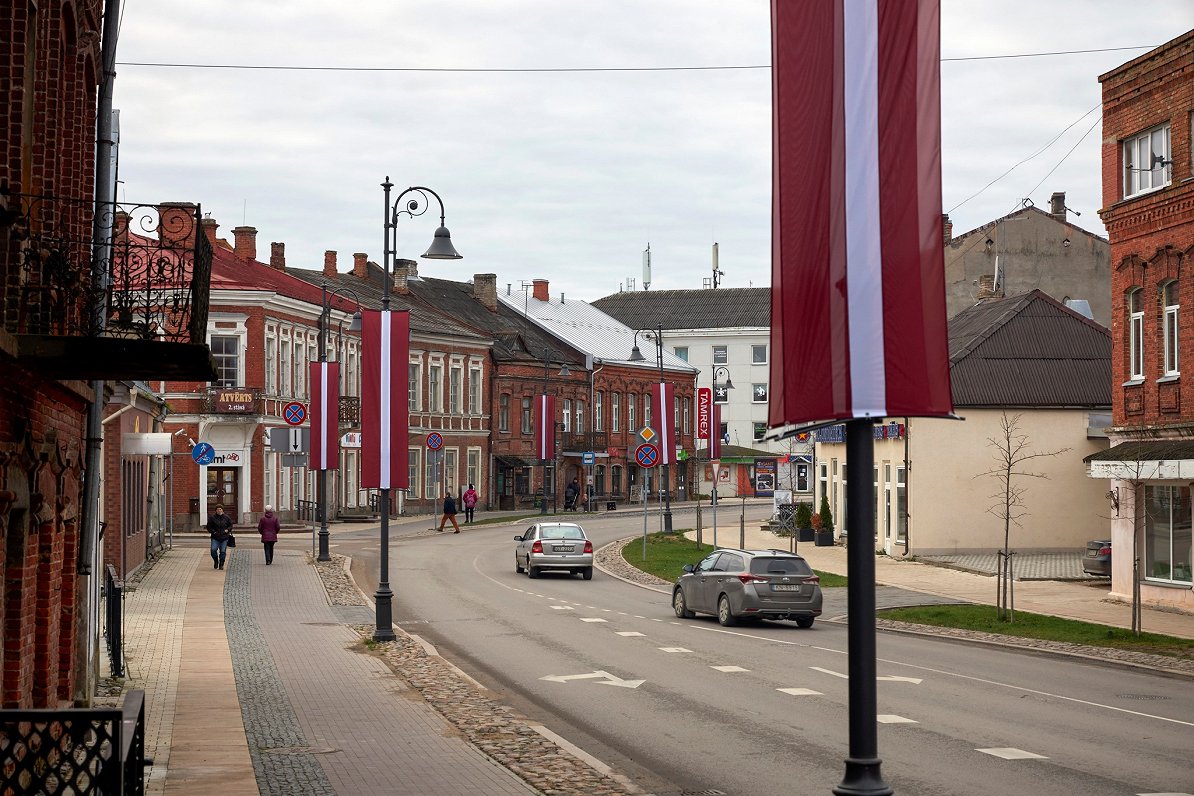Rēzekne is one of the cities in Latgale where some 300 Ukrainian war refugees are currently settled. On a workday evening, Ukrainians, Latvians and Latgalians gathered at Rēzekne National Society House to prepare a huge camouflage net, which is expected to be brought to Ukraine soon.
"The net workshop is divided into two parts. In one room, girls cut fabrics that have been donated because they have to make ribbons so they can weave them in the net. In one room, girls cut and in another room, men weave the net," said Daiga Stavska, who was born in Latvia but has lived in Ukraine for the past 30 years.
Now she and her husband, fleeing war, live in Latvia, while two of their sons remained in their homeland and are in the Ukrainian army.
"Our two children were in the war. Both are now in rehab following the injury. What's next, we don't know for now. Health problems for both. We wait every morning for news from them. When there is no news, I immediately start to worry, but we are used to calming ourselves down and believing everything will be fine," Daiga said.
Typically, the net weaving takes place on Wednesdays, and the number of attendees does not decline, with about 10 people each time.
In total, around 40,000 refugees from the war in Ukraine have ended up in Latvia, 35% or about 9,000 have found a job, according to the State Revenue Service.
Daiga Stavska noted that it is currently difficult to say how many Ukrainian refugees live and work in Rēzekne, as each tries to set up their own lives. Many go further to Europe after a while or return to Ukraine. She herself works in Rēzekne, and, thanks to her command of Latvian and her pedagogical education, she could take up work within a few weeks.
"Two years ago, we returned from Ukraine with our husband. Almost from the first day, April 1, I started working in school – teaching Latvian to Ukrainian children. Like last summer, I will also be conducting Latvian language courses for Ukrainians this summer, "said Daiga.
Within two years, most Ukrainians known to Daiga have undergone one or even several Latvian language training courses and found work. 'Works in very different places: cafes, pizzerias, sewing companies, factories, a meat production plant. Some people need Latvian. But for girls who work in a meat shop, they don't need much Latvian. And they don't have time to learn either, because they work from eight in the morning to eight in the evening and the kids are still at home," Daiga said.
Not all have found work, so benefits can be received at the social services.
Gunārs Arbidāns, head of the Social Service in Rezekne, said that of the 1,200 who have arrived in Rēzekne in total, 900 have left Latvia, while some of those left receive state benefits.
"As of 2022, when the war broke out in Ukraine, 663 Ukrainian people have received social assistance in the city of Rezekne. Currently, 330 people living in Rezekne receive social assistance. Initially, the crisis allowance and the allowance granted to host households were requested. There are nine benefits for the given moment as support for Ukrainians. They relate to children: support for the performance of the duties of a guardian, allowance for the maintenance of an unaccompanied child, and allowance for the purchase of clothing and medical supplies. The next most sought-after benefit is the GMI benefit, and the second most sought-after is the housing benefit with a rental contract for households from Ukraine. In April, 120 households received the benefit. The system for support is the same as for our people," Arbidāns said.





























